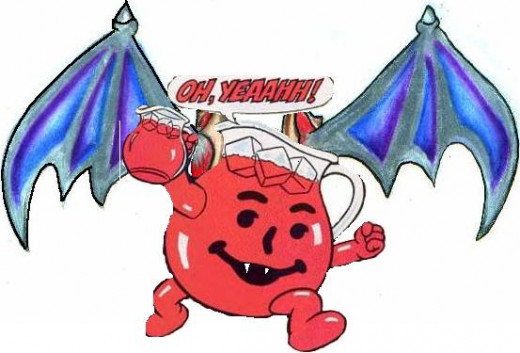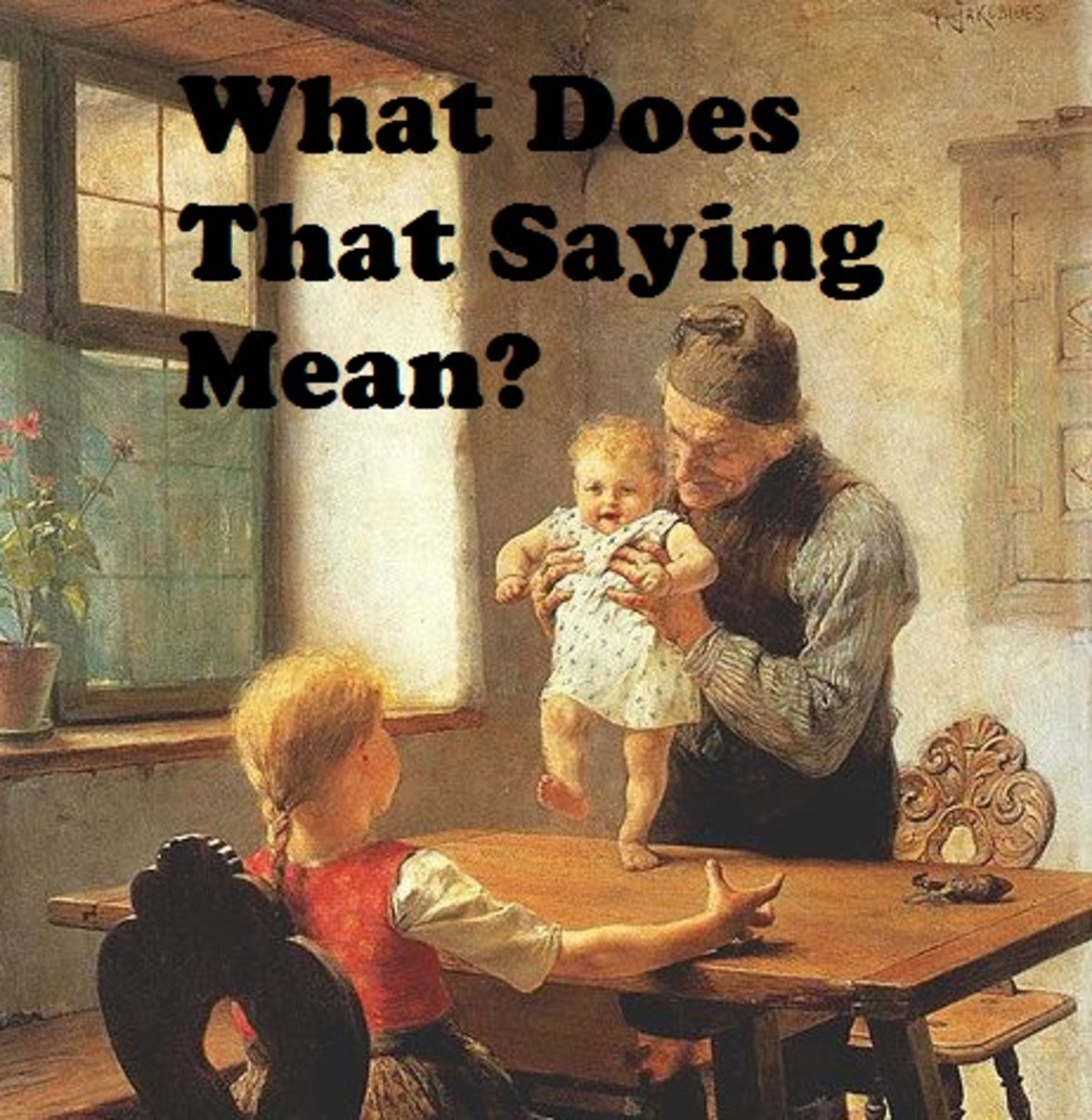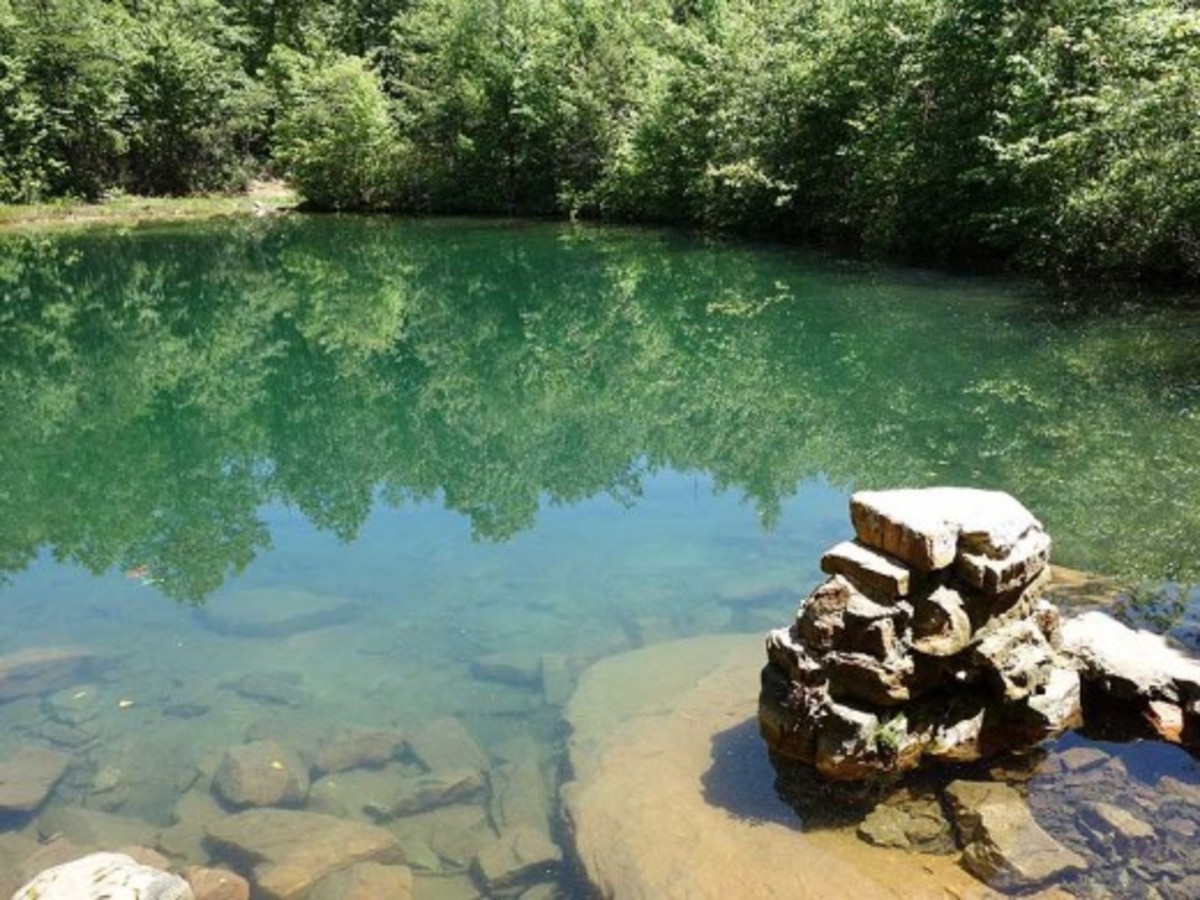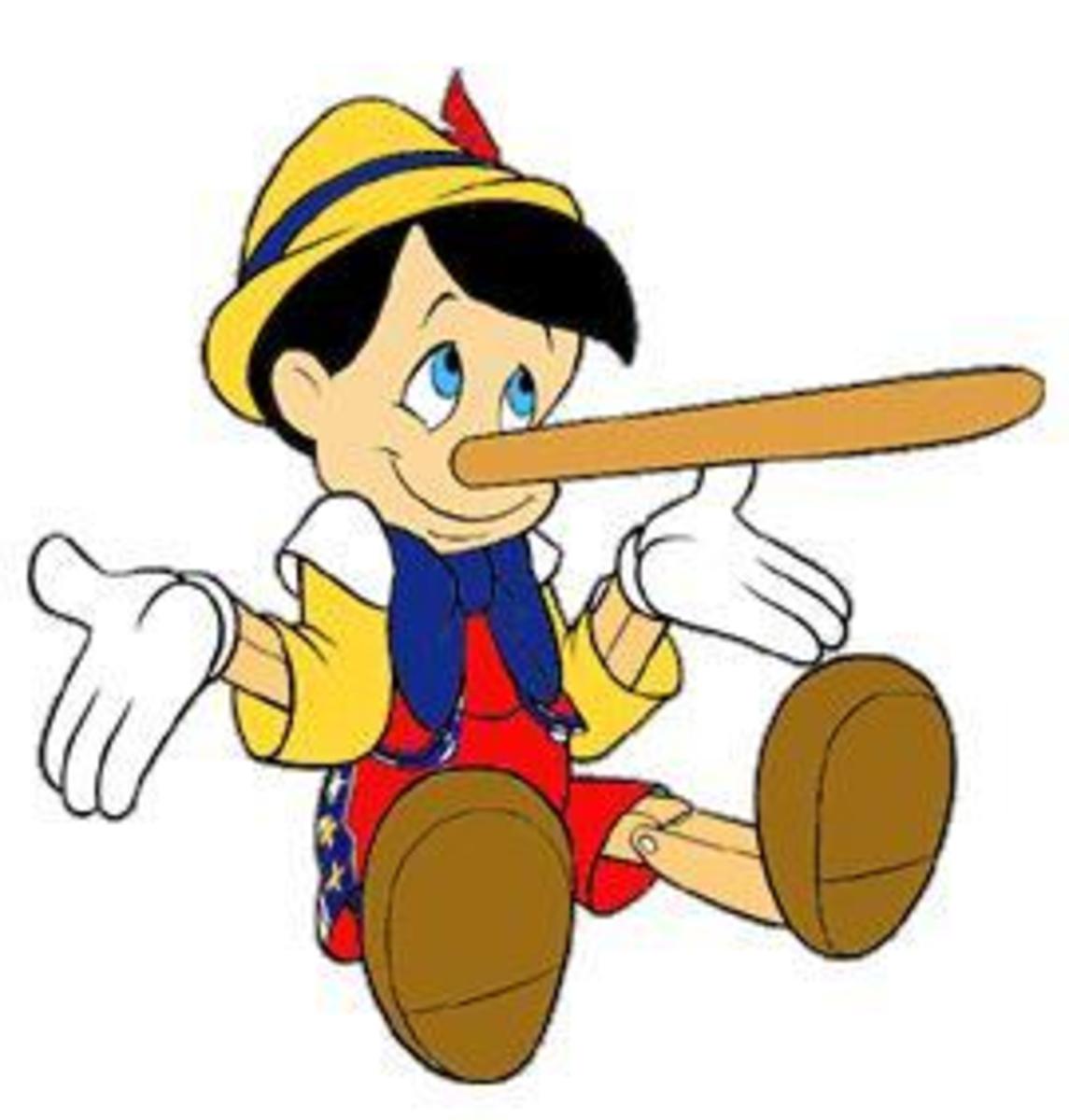Why We Say: Don’t Drink The Cool-Aid

The saying 'Don't drink the cool-aid' is one most of us have heard before. Many of us associate the phrase with the Jim Jones tragedy in the country Guyana on the continent of Africa. It is also a saying I heard a decade before Jonestown from both my mother and my grandmother.
My mother and grandmother intended this as real warnings about accepting offers of free drinks from folks we did not know. As I grew older, I began to understand that it might also mean ‘think twice about what you hear'. Now when I hear the phrase, I sometimes wonder about which way it is meant.
North Chicago
The setting was in North Chicago, in the 60’s. Mom was being independent and taking a college class in English at one of the nearby Colleges or Universities. I say ‘being independent’ because in those days it was generally accepted that the man of the house was the bread-winner, and the woman’s role was to stay at home and take care of the kids. Mom was a bit older than your average college student of that day (I was ten, or less), and she survived the sixties. For those who did not live through it, the sixties was a time of racial hatred, religious hatred, lifestyle hatred, demonstrations, assassinations, and common every-day casual street violence. (Everyone has heard of the demonstration at the Democratic Convention in ’68, I got to visit the evening it happened).
I first heard the saying in those times, on two separate occasions. Both times I took it literally, as children do, but in retrospect it may not have been meant that way.
The first time, Mom was heading out to some student function, Mom and Dad were discussing it because it meant somebody had to be babysitter for us kids. I recall overhearing the phrase ‘Don’t Drink the Cool-Aid’ and went to the kitchen and started reading the ingredients list on the small packages of Kool-Aid we had in the house. When Mom came in to see what I was up to she responded to my question by pointing out the fancy names they used for sugar on the ingredients list, and said those are bad for you. My parents discussion ended as Mom left the kitchen, Dad saying something like ‘brainwash’, followed by Mom saying ‘big ears and little pitchers’, which left me thoroughly confused, imagining something along the lines of someone using a cooking funnel to pour cool-aid into someone’s ears.
The second time, I was going to visit a friend’s house, the vacationer I’ve mentioned before. Mom seriously warned me ‘Don’t drink the Cool-Aid’. For whatever reason, I thought of the Mary Poppins song, after all, the sixties also was the time of Mary Poppins. But I took Mom's request to heart, and resolved not to drink anything on my visit. Of course, when he visited us, I was allowed to offer HIM some Kool-Aid, which I recall he politely turned down. It seems we both had over-imaginative mothers (or maybe not).
Is Cool Aid A good Thing?
Washington, DC.
The other time was also in the 60’s, but this time the place was the southeast quadrant of Washington, DC. This was the era of the Washington riots and the fires on north side of town, DC's sad offering to the legacy of Martin Luther King. My grandfather had a row-house in southeast that he’d had for years. Their church was not too far away, also in Southeast. When we visited my grandparents, it was expected we’d go to church on Sunday, to Sunday school, sermon, and the little social afterwards that was held in the basement of the church. Grandmother always took me aside before going and would say ‘Don’t drink the cool-aid.’ I asked why, and grandma explained that ‘sometimes the folks who serve the Kool-Aid will add something to it that will make you sick’. Trusting in grandmother, I always made a point of drinking water during the little socials, and running off to bang on the piano (I can’t play) or play shuffleboard (I can't play shuffleboard either). All too often, as we returned from church grandma would sometimes have something not so nice to say about whatever was being said, us always politely nodding our heads up and down and agreeing. I paid it no attention, knowing once again to wait until we got home to get my own glass of sugary ‘cool-aid’.
Grandfather sold his house to get away from the violence of the late sixties and moved to the suburbs. In the 70’s after they moved, I’d still hear the saying before we went to church.
Either way, towards the end of the seventies, I’d pretty much forgotten about cool-aid, having graduated to more serious sugary drinks, like Dr. Pepper.
But then we heard about Jonestown.
Or Is Cool Aid A Bad Thing? (from YouTube - FireLightMedia)
Jonestown
The Jonestown event at the end of the 70's is the one most folks almost automatically associate with the phrase. The event became well known because it involved the mass death of over nine hundred people led to their death by a single charismatic leader. Their death was reported to be by means of drinking a cyanide laced drink.
Jonestown made many wonder, how could one person mislead so many to the point that they would willingly commit mass suicide? Had the leader somehow obtained the Pied Piper’s magic flute? Was he spiking their Cool Aid all along? Or were their minds poisoned with doctrine, long before their bodies were poisoned with cyanide. In this case, it looks like cool aid in the form of a prolonged doctrine of propaganda preceded the event. It's a sad day indeed when Congressmen drink the cool-aid.
But it did make me rethink my parents’ discussion back in the sixties, and how, as a child, I was led away from thinking about such things. It almost made me recall some of my parents (and grandparents) favorite sayings: ‘Do you believe everything you hear?’, and ‘Do you believe everything you read?’ I grew accustomed to automatically answering ‘Of course not’, and grew up questioning nearly everything, much to the annoyance of my teachers, both in Sunday school and in School.
Either way, most who have learned of this tragedy associate it with the phrase 'Don't Drink the Cool Aid'.
Modern Day
Take a moment and look back at that Mary Poppins ‘spoonful of sugar’ video. Did you notice how quickly you began to sing along? Did you notice the entranced children? I’m sure it wasn’t intended that way, but in retrospect, the children's hypnotized look seems to be a warning of things to come. Now, forty years later in the 2010s, think about the fact that those children are roughly the same age as our current leaders. Did they sing that song too? Didn't we all?
Now that we are well into the twenty-first century, I recall Dad saying 'brainwash' that first time that I heard the Cool-Aid phrase, over forty years ago. But now, I've got a little bit more experience behind me, and can't help but wonder if my parents were aware of the extracurricular education that was occurring at that time in Chicago. I now believe their usage of the phrase really had little to do with drinking the drink, and had much to do with being exposed to the subliminal subterfuge that is so widespread in that area. Perhaps other children growing up in that time took it literally enough to allow a Jonestown to happen.
Now today, we hear the voices of some Congressmen with the apparent attitude “not to worry, we’re only doing what’s good for you”, as if they know best. I look back at the Disney video and I think ‘I don’t know, maybe it’s a good thing’, then I look at the Jonestown video and I think ‘‘I don’t know, but to me that looks like a bad thing’, and I wonder if the path we follow is just too sweet for us to stray.
And so, I leave you with this thought: Beware the offerings that poison the mind, for they affect even the best and brightest. Know your own values and don't let someone lead you away from them with sugary promises of an easy path.
- Project MKULTRA - Wikipedia, the free encyclopedia
More about mind control
Authors Note
The author has taken care in this article to distinguish between Kool-Aid as a product, and the use of the term 'cool-aid' when referring to people who may unwittingly subject themselves to subliminal subterfuge. While it might be tempting to change the title of this article to 'Don't Drink The Kool-Aid' in order to conform to a notion of a higher standard, to do so would mean the author would have to 'Drink the Cool-Aid', and worse, be misguided into offering an unwarranted recommendation regarding the goodness of Kool-Aid (the product). If the makers of Kool-Aid chose to take offense because of the new title, it would be the author and not the holder of the higher standard they would seek to hold accountable.





